Are you tired of the relentless noise coming from your car's AC compressor?
Well, do not worry, because I've got you covered with years of experience under my belt.
I'm here to share 15 proven techniques to help you quiet a noisy car AC compressor and restore peace to your daily drives.
According to a recent study conducted by the National Highway Traffic Safety Administration (NHTSA), excessive noise inside vehicles can contribute to driver fatigue and distraction, potentially increasing the risk of accidents.
In fact, the study found that noise-related distractions accounted for a significant percentage of road incidents.
Now, you might be wondering, "What can I do to quiet this noisy culprit?"
Well, the good news is that you're about to discover 15 tried-and-true techniques that will transform your car into an oasis of tranquility.
From checking for loose components to adjusting refrigerant levels and soundproofing the engine compartment, we'll leave no stone unturned in our mission to bring back the serenity you deserve.
So fasten your seatbelts and get ready to embark on this noise-reducing journey with me.
Let's dive into the world of quieting a noisy car AC compressor together!
Understanding the Noisy Car AC Compressor
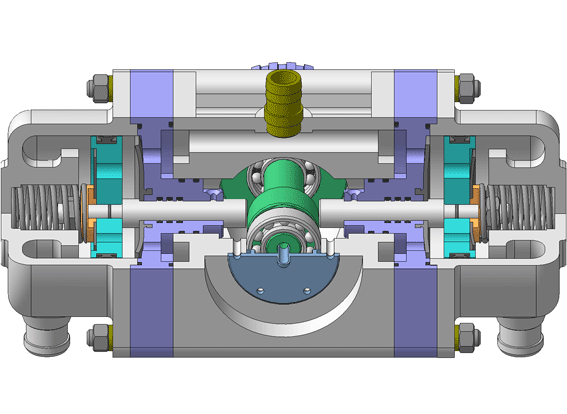
Before we jump into the techniques to quiet a car AC compressor, let's unravel the mysteries behind its noisy behavior.
By understanding the root causes, we'll be better equipped to tackle the issue head-on and restore peace to our driving experience.
Why is My Car Ac Compressor Making Noise?
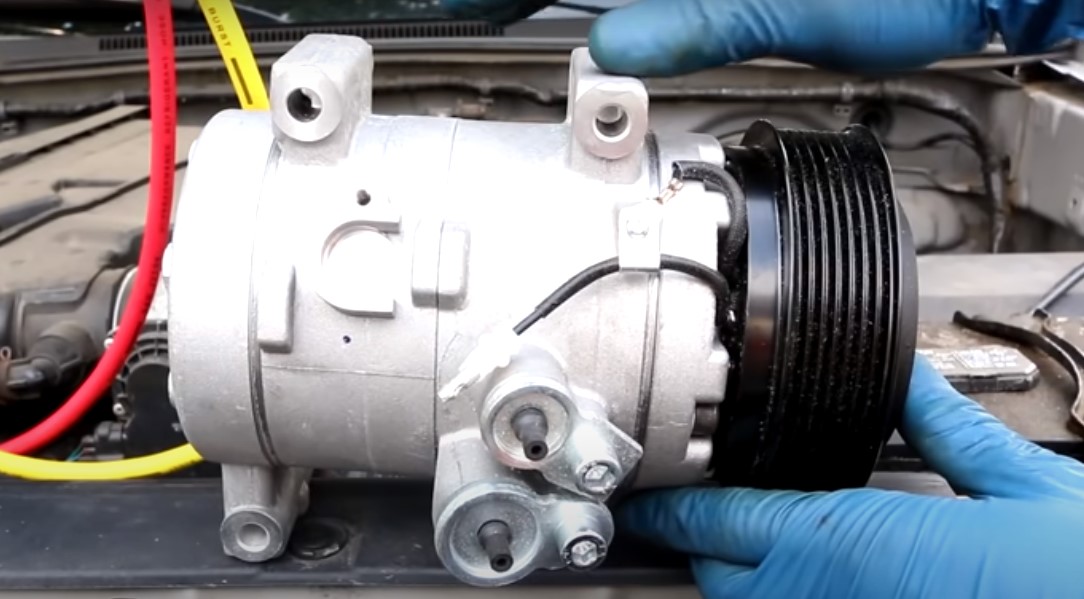
A car AC compressor can make noise due to various reasons, including a worn or misaligned AC belt, loose components, worn-out bearings, compressor clutch issues, faulty valves, or excessive refrigerant flow.
It's important to address the noise promptly to prevent potential AC system problems.
Have a qualified mechanic inspect and diagnose the specific cause for proper repair.
What Causes a Noisy Car AC Compressor?
- Belt Misalignment: One common culprit behind a noisy compressor is a misaligned AC belt. When the belt becomes worn or loose, it can cause squealing or screeching noises as it slips on the pulleys. It's like a car alarm that won't shut up!
- Worn-out Bearings: Over time, the bearings in the AC compressor can wear out, leading to a rumbling or grinding sound. It's as if the compressor is protesting its old age and demanding retirement.
- Compressor Clutch Issues: The compressor clutch is responsible for engaging and disengaging the compressor. If the clutch is damaged or worn, it can produce rattling or clicking sounds. It's like the beatboxing grandmaster of the AC world.
- Internal Valve Problems: Faulty valves within the compressor can cause hissing or whistling noises. It's like having a tiny tea kettle hiding under your hood, ready to serve up a hot cup of noise.
- Excessive Refrigerant Flow: When there's too much refrigerant flowing through the compressor, it can create a gurgling or bubbling noise. It's like the compressor has turned into a mini jacuzzi, complete with its own soundtrack.
The Importance of Addressing the Noise Issue
Now, you might be thinking, "Why should I bother quieting my car's noisy AC compressor? Can't I just crank up the volume on my favorite tunes?" While blasting music might seem like a temporary solution, there are some important reasons to tackle the noise problem:
1. Enhanced Driving Experience: Driving in peace and quiet is not just a luxury; it's a necessity for a pleasant journey. Reducing the noise from your AC compressor allows you to focus on the road and enjoy the sounds you actually want to hear.
2. Early Detection of Problems: Ignoring a noisy compressor can lead to bigger issues down the road. Addressing the noise early on can help you identify any underlying problems and prevent further damage to your AC system.
3. Extended Compressor Lifespan: A well-maintained and properly functioning AC compressor has a longer lifespan. By resolving the noise issue, you're not only restoring tranquility but also increasing the longevity of your compressor.
4. Potential Cost Savings: Fixing a noisy compressor early may help you avoid costly repairs or compressor replacements in the future. A stitch in time saves nine, as they say.
Preparing for Compressor Noise Reduction
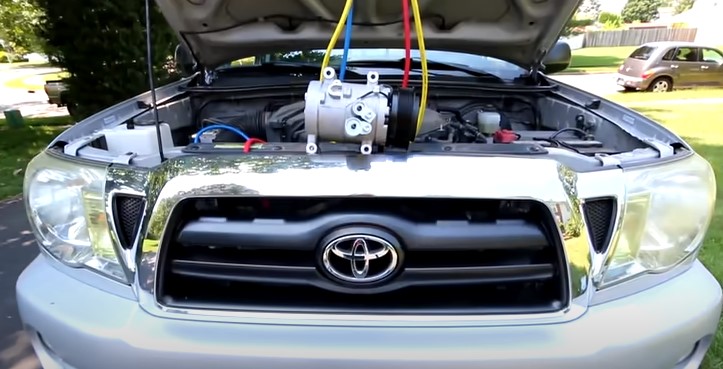
Before we embark on our mission to quiet a noisy car AC compressor, it's crucial to make the necessary preparations.
Let's prioritize safety and gather the tools we'll need for the job.
Safety Precautions Before Starting
- Park in a Well-Ventilated Area: Ensure that your car is parked in a well-ventilated space, preferably outdoors or in a well-ventilated garage. This will help dissipate any fumes or odors that may arise during the repair process.
- Engage the Parking Brake: Before working on your car's AC system, engage the parking brake to prevent any unexpected movement while you're under the hood. Safety first, always!
- Allow the Engine to Cool Down: AC components can get hot during operation. So, give your engine sufficient time to cool down before beginning any work. You don't want to burn your fingers or risk injury.
- Disconnect the Battery: To avoid any electrical mishaps, disconnect the negative terminal of your car's battery. This step will ensure that you won't accidentally trigger any electrical systems while working on the AC compressor.
Gathering the Necessary Tools
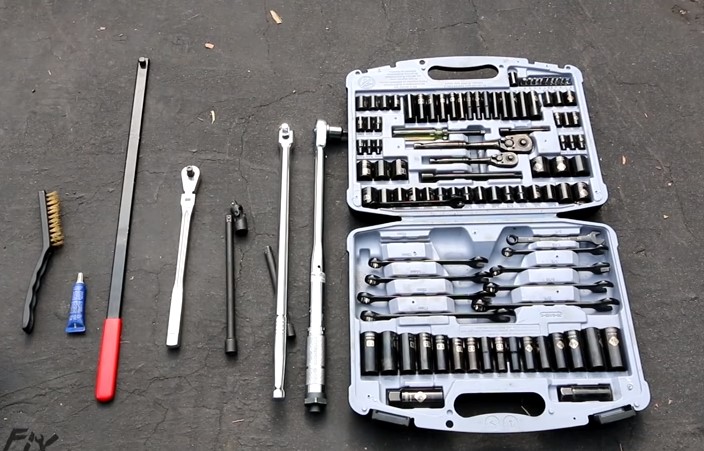
Now that we've taken the necessary safety precautions, it's time to assemble the tools we'll need for the noise reduction mission.
Here's a handy checklist to guide you:
- Protective Gear: Don't forget to equip yourself with safety goggles, gloves, and a face mask. It's better to be safe than sorry, especially when working with potentially harmful substances or components.
- Basic Hand Tools: You'll need a set of wrenches, sockets, screwdrivers, and pliers to tackle various components during the noise reduction process. Make sure you have the right sizes for your specific car model.
- Lubricant: Keep a can of appropriate lubricant handy for lubricating the compressor if necessary. Check your car's manual or consult a professional to ensure you're using the correct lubricant.
- Cleaning Supplies: Prepare some clean rags, a soft brush, and compressed air for cleaning the condenser and other components. We want that compressor to shine, both figuratively and literally.
- Belt Tensioning Tool: If you suspect that a misaligned AC belt is causing the noise, consider having a belt tensioning tool on hand. It will help you adjust the tension accurately and bring harmony back to the belt's performance.
With your safety gear donned and your tool collection complete, you're now fully equipped to tackle that noisy car AC compressor.
We're ready to dive into our 15 Proven Techniques to Quiet Car AC Compressor.
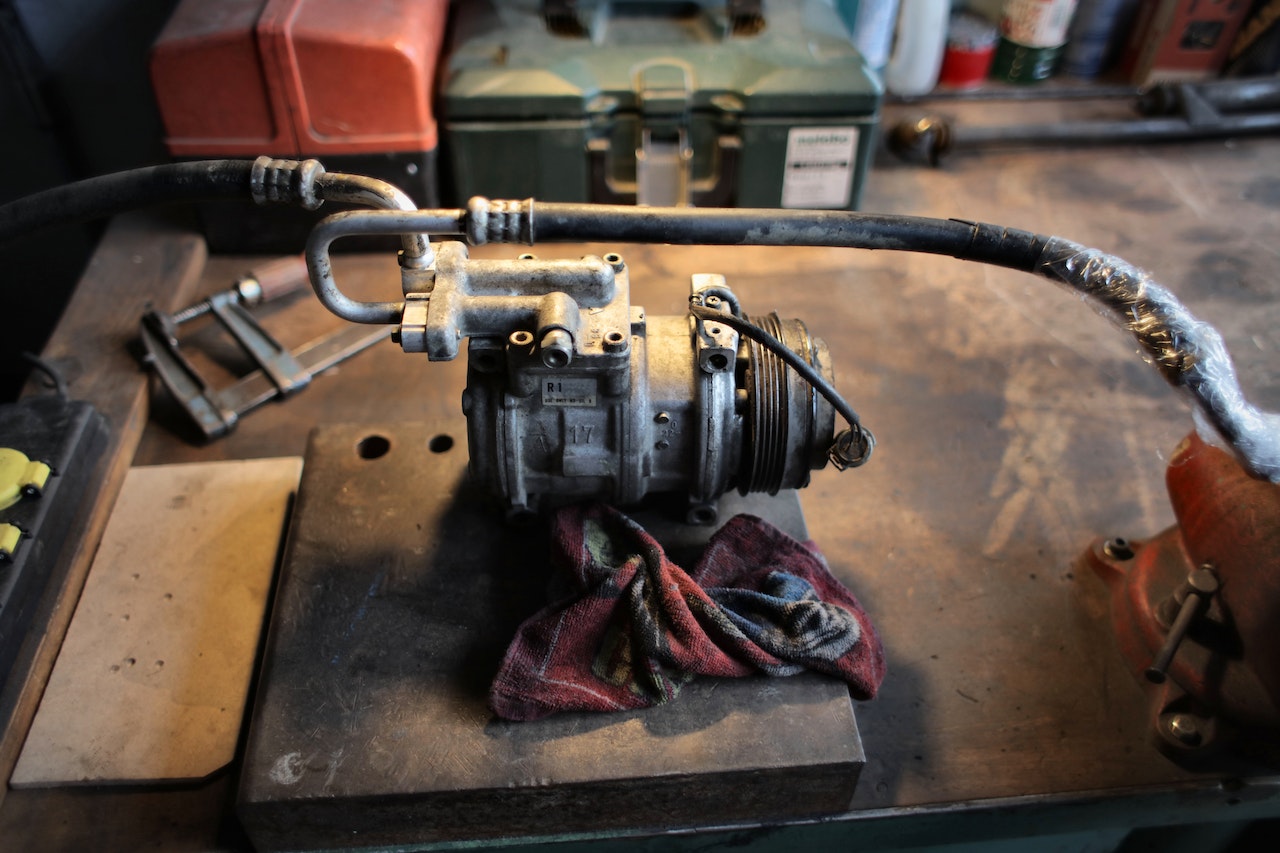
What Type of Sound A Noisy Car Ac Compressor Emits?
A noisy car AC compressor can emit various types of sounds, depending on the underlying issue.
Some common sounds associated with a noisy AC compressor include:
Squeaking or Screeching
A high-pitched squeaking or screeching noise can indicate a problem with the AC belt.
It may be caused by a worn-out or misaligned belt.
How to quiet a squeaking or screeching noise originating from your car's AC compressor.
If you want to fix it, so you can take the following steps:
Check the AC Belt
Start by inspecting the AC belt for signs of wear, damage, or misalignment.
Over time, belts can become worn-out or stretched, resulting in a squeaking or screeching noise.
Look for cracks, fraying, or glazing on the belt surface.
Adjust the Belt Tension
If the AC belt is loose, it may not be applying enough pressure on the pulleys, leading to noise.
Using a belt tensioning tool or adjuster, tighten the belt to the manufacturer's recommended tension.
Refer to your vehicle's manual for specific instructions and tension specifications.
Replace the Belt
If the AC belt is excessively worn, damaged, or cannot be adequately tensioned, it's best to replace it with a new one.
Purchase a belt that matches the specifications outlined in your vehicle's manual or consult a professional for assistance.
Remember to properly route the new belt around the pulleys.
Lubricate the Belt
Applying a belt conditioner or belt dressing spray to the AC belt can help reduce friction and eliminate squeaking noises.
These products improve the belt's grip on the pulleys and reduce the likelihood of noise.
Follow the instructions provided with the specific product for correct application.
Verify Pulley Alignment
Misaligned pulleys can cause the AC belt to rub against adjacent components, resulting in noise.
Check the alignment of the pulleys connected to the AC belt.
If misalignment is detected, adjust the pulleys to ensure they are properly aligned.
This will prevent belt slippage and associated noise.
Seek Professional Help
If the noise persists despite your efforts or if you are uncertain about performing the repairs yourself, it's recommended to seek assistance from a qualified mechanic.
They have the expertise to diagnose the issue accurately and may identify additional factors contributing to the noise.
Rumbling or Grinding
A deep rumbling or grinding noise can suggest worn-out bearings within the AC compressor.
Over time, the bearings can deteriorate, resulting in this type of noise.
How to effectively quiet a rumbling or grinding noise coming from your car's AC compressor, so it's important to take the following steps:
1. Check the AC Compressor Bearings:
The noise you're hearing could be a result of worn-out or damaged bearings within the AC compressor.
These bearings support the rotating components of the compressor, and over time, they can deteriorate, leading to a rumbling or grinding sound.
Carefully listen to the compressor area to confirm if the noise is originating from the bearings.
2. Consult a Professional Mechanic:
Replacing AC compressor bearings requires specialized knowledge and tools, and it can be a complex task.
It's highly recommended to consult a professional mechanic who has experience working with AC systems.
They can accurately diagnose the issue, assess the condition of the bearings, and determine the necessary repairs.
3. Consider Compressor Replacement:
In some cases, if the compressor bearings are severely worn or damaged, it may be more practical and cost-effective to replace the entire AC compressor.
A professional mechanic can evaluate the situation and provide guidance on whether a compressor replacement is necessary.
4. Perform Regular AC System Maintenance:
To prevent future noise issues and ensure the longevity of your AC system, it's essential to perform regular maintenance.
This includes keeping the system clean and free from debris, ensuring proper lubrication of moving parts, and addressing any potential issues or strange noises promptly.
Rattling or Clicking
A rattling or clicking noise can be attributed to a faulty compressor clutch.
The clutch engages and disengages the compressor, and when it malfunctions, it can produce these sounds.
How to effectively quiet a rattling or clicking noise originating from your car's AC compressor, so it's important to follow these steps:
1. Inspect the Compressor Clutch:
The rattling or clicking noise may be caused by a faulty compressor clutch.
Inspect the clutch assembly for any signs of damage, wear, or misalignment.
Look for loose or broken components that may be contributing to the noise.
2. Consult a Professional Mechanic:
To accurately diagnose the issue and determine the appropriate solution, it's recommended to consult a professional mechanic who specializes in AC systems.
They have the expertise and experience to identify the source of the noise and provide the necessary repairs or replacements.
3. Repair or Replace the Compressor Clutch:
If the compressor clutch is found to be the culprit, it may require repair or replacement.
Depending on the extent of the damage or wear, the clutch components may need to be adjusted, repaired, or entirely replaced.
A professional mechanic will perform the necessary repairs using the right tools and techniques.
4. Perform Regular Maintenance:
To prevent future issues and maintain optimal performance, it's important to perform regular maintenance on your AC system.
This includes keeping the system clean, checking and replacing filters as needed, ensuring proper lubrication, and addressing any potential problems promptly.
Hissing or Whistling
Faulty internal valves within the compressor may cause hissing or whistling noises.
These noises can occur as refrigerant flows through the system.
How to effectively quiet a hissing or whistling noise originating from your car's AC compressor, it's important to consider these steps:
1. Check for Refrigerant Leaks:
Hissing or whistling noises are often indicative of refrigerant leaks within the AC system.
Inspect the AC lines, fittings, and connections for any signs of leaks, such as oily residue or refrigerant stains.
Leaks can occur due to damaged components, worn seals, or loose connections.
2. Seek Professional Assistance:
Refrigerant leaks and their associated repairs require professional expertise.
It's recommended to consult a qualified mechanic or AC specialist who can accurately diagnose the location and severity of the leak.
They will use specialized tools and techniques to detect and repair the leak, ensuring the proper sealing of connections and replacement of damaged components.
3. Repair or Replace Faulty Valves:
Faulty internal valves within the compressor can also cause hissing or whistling noises.
These valves regulate the flow of refrigerant within the system.
Diagnosing and repairing or replacing faulty valves should be left to professionals who have the knowledge and experience to handle such intricate components.
4. Ensure Proper Refrigerant Levels:
Incorrect refrigerant levels can lead to hissing or whistling sounds.
A professional AC technician can check and adjust the refrigerant levels as needed to ensure optimal performance and eliminate noise caused by improper pressure or flow.
5. Perform Regular Maintenance:
To prevent future issues and maintain the efficiency of your AC system, it's important to perform regular maintenance.
Keep the system clean, replace filters regularly, and address any potential problems promptly.
Regular maintenance helps identify and address issues before they worsen, reducing the likelihood of noise problems.
Gurgling or Bubbling
Excessive refrigerant flow or a refrigerant-related issue can result in gurgling or bubbling noises.
This sound can indicate an imbalance or issue within the AC system.
How to effectively quiet a gurgling or bubbling noise originating from your car's AC compressor, it's important to follow these steps in detail:
1. Check for Proper Refrigerant Levels:
Improper refrigerant levels can lead to gurgling or bubbling sounds within the AC system.
Consult a professional mechanic or AC specialist to check the refrigerant levels using pressure gauges and ensure they are within the manufacturer's recommended range.
Adjust the refrigerant levels if necessary to achieve the optimal amount for proper system operation.
2. Inspect for Refrigerant Restrictions:
Gurgling or bubbling noises can occur if there are restrictions or obstructions within the AC system.
Inspect the AC lines, condenser, and evaporator for any signs of blockages or clogs.
Remove any debris, dirt, or obstructions that may impede the flow of refrigerant.
Clearing these restrictions will help ensure smooth refrigerant flow and reduce noise.
3. Verify Proper AC System Evacuation and Recharge:
If the gurgling or bubbling noise persists, it may indicate an issue with the AC system's evacuation and recharge process.
Air and moisture trapped within the system can cause noise and affect its efficiency.
Consult a professional technician to perform a proper evacuation and recharge procedure.
This process removes air and moisture from the system, ensuring the correct refrigerant charge and eliminating noise-causing factors.
4. Seek Professional Assistance:
If the noise persists despite your efforts, it's recommended to seek professional assistance from a qualified mechanic or AC specialist.
They have the knowledge and experience to accurately diagnose the issue and perform any necessary repairs or adjustments to address the gurgling or bubbling noise effectively.
They can also use specialized equipment to detect any underlying problems that may require attention.
5. Perform Regular Maintenance:
To prevent future noise issues and maintain the efficiency of your AC system, perform regular maintenance.
Keep the system clean by regularly cleaning the condenser and evaporator coils.
Replace filters as recommended by the manufacturer to ensure proper airflow.
Address any potential problems promptly to prevent further issues and noise development.
How to Quiet a Noisy Car Ac Compressor: 15 Working Techniques
All right guys, Now it's time to quiet a noisy car AC compressor and restore peace to your driving experience.
In this section, we'll walk you through 15 proven techniques step-by-step.
Checking for Loose Components
Inspect your AC compressor and its surrounding components for any loose bolts, brackets, or fasteners.
Tighten them appropriately to eliminate vibrations and rattling noises.
Cleaning the Condenser
Dust and debris can accumulate on the condenser, hindering its performance and causing unnecessary noise.
Use a soft brush or compressed air to clean the condenser thoroughly and ensure optimal airflow.
Adjusting Refrigerant Levels
Improper refrigerant levels can strain the AC compressor, leading to noise.
Consult a professional to check and adjust the refrigerant levels accordingly for optimal performance.
Lubricating the Compressor
Check your vehicle's manual to determine if your AC compressor requires lubrication.
If applicable, locate the lubrication points and apply the recommended lubricant to minimize friction and reduce noise.
Inspecting and Replacing the AC Belt
A worn or misaligned AC belt can cause screeching or squealing noises.
Inspect the belt for signs of damage and replace it if necessary.
Adjust the tension if it's too loose to ensure smooth operation.
Repairing or Replacing the Compressor Clutch
If the compressor clutch is damaged or worn, it can create rattling or clicking noises.
Consult a professional to diagnose the issue and repair or replace the clutch if needed.
Addressing Faulty Valves
Hissing or whistling noises may indicate faulty valves within the compressor.
Seek professional assistance to identify and repair or replace the faulty valves.
Insulating AC Lines
Adding insulation to the AC lines can reduce noise transmission and vibration.
Use specialized insulation materials designed for this purpose to effectively dampen noise.
Soundproofing the Engine Compartment
Consider using soundproofing materials like acoustic foam or mass-loaded vinyl to reduce noise from the engine compartment.
Apply them strategically to block and absorb sound waves.
Maintaining Proper Airflow
Ensure there are no obstructions blocking the airflow around the AC compressor and condenser.
Clear away debris and ensure proper ventilation to promote efficient and quiet operation.
Balancing the Compressor Pulley
A misaligned or unbalanced compressor pulley can cause noise.
Consult a professional to balance the pulley or replace it if necessary for smooth and quiet operation.
Installing a Compressor Noise Reducer
Consider installing a compressor noise reduction device, such as a noise reduction bracket or isolator, to minimize vibrations and noise transmission.
Using Vibration Dampeners
Apply vibration dampening pads or strips to the mounting points of the compressor and other nearby components.
These dampeners absorb vibrations, reducing noise.
Upgrading to a Quieter Compressor Model
If all else fails and your current compressor is beyond repair, consider upgrading to a quieter model.
Consult a professional to ensure compatibility and proper installation.
Seeking Professional Help
If the noise persists or you're uncertain about performing the repairs yourself, it's best to consult a qualified mechanic or AC specialist.
They have the expertise to diagnose and fix any underlying issues with your AC compressor.
 Pro Tip
Pro TipIn short to quiet a noisy car AC compressor, start by checking for loose components and tightening them. Clean the condenser to remove debris that may hinder its performance. Adjust refrigerant levels and lubricate the compressor if necessary. Inspect and replace the AC belt if it's worn or misaligned. Repair or replace the compressor clutch if damaged. Address faulty valves and consider insulating AC lines or soundproofing the engine compartment. Seek professional help if needed. Following these steps will help minimize noise and restore a peaceful driving experience.
Conclusion On Quiet a Noisy Car AC Compressor
Now, we've reached the end of our journey to quiet a noisy car AC compressor, and what a ride it's been.
We banished loose bolts, cleaned condensers, and lubricated compressors like seasoned pros.
Our cars are now tranquil sanctuaries on wheels, offering peaceful driving experiences.
But it's not just about the absence of noise.
We've improved our well-being, reduced stress, and found driving pleasure amidst the chaos of the road.
As we bid adieu to this noise-reducing adventure, remember to stay curious and continue nurturing your automotive expertise.
Regular maintenance and attention to detail keep our vehicles in top shape.
So, with our noise-reducing capes flowing in the wind, let's hit the road, revel in the symphony of silence, and continue our pursuit of automotive excellence.
Safe travels, my noise-free comrades.
Faqs About Quiet a Noisy Car AC Compressor
How can I quiet a noisy car AC compressor?
To quiet a noisy car AC compressor, start by identifying the type of sound it emits. Depending on the sound, remedies can range from applying water to the serpentine belt for squeaking noises to seeking professional assistance for buzzing sounds.
How do I know if my car's AC compressor needs professional attention?
If you have tried basic remedies and the noise from your car's AC compressor persists or worsens, it's advisable to seek the expertise of a professional mechanic. They can accurately diagnose the problem and provide the necessary repairs or replacements.
Can I fix a noisy car AC compressor myself?
Basic remedies like applying water to a squeaking belt can be attempted by car owners. However, for more complex issues or persistent noise, it's best to consult a professional mechanic who has the knowledge and experience to handle AC system repairs effectively.











